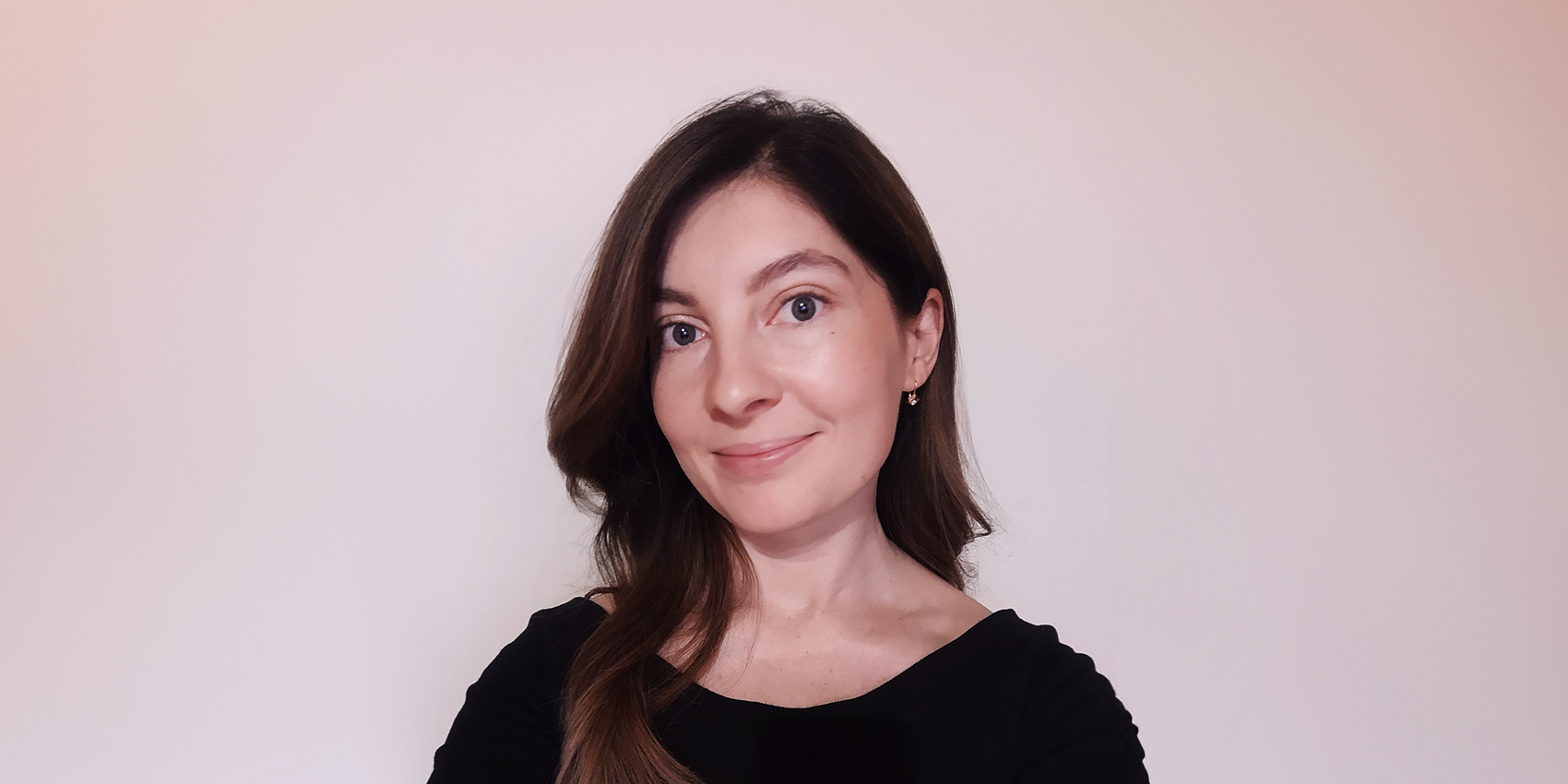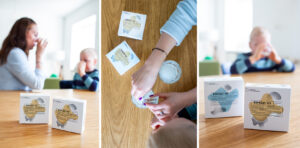
Marta Patoka, psycholożka: Nawet z pojedynczych informacji dziecko może ułożyć sobie historię, w której lekarze, badania, czy szpital będą czymś strasznym
Klaudia Kierzkowska: Wizyta u lekarza dla wielu dzieci jest jednym z gorszych wydarzeń. Skąd ten lęk, ta niechęć?
Marta Patoka: Wykorzystam ulubioną odpowiedź psychologów – to zależy. Przyczyn może być wiele. Mogą to być złe doświadczenia z wcześniejszych wizyt, może to być historia chorobowa dziecka, które od wczesnego dzieciństwa jest w roli pacjenta. Dziecko może być też świadkiem rozmów na temat wizyt u lekarza, czyjegoś pobytu w szpitalu, świadkiem reakcji lękowej innego dziecka w trakcie wizyty w przychodni. Nawet z pojedynczych informacji dziecko może ułożyć sobie historię, w której lekarze, badania, czy szpital będą czymś strasznym. Być może dziecko doświadczyło już niezbyt przyjemnej wizyty u lekarza, bądź bólu, przestraszyło się podczas szczepienia albo na samo wspomnienie zaglądania do gardła z użyciem szpatułki reaguje lękowo.
A może problem tkwi w rodzicach, którzy podczas wizyty u lekarza są niespokojni?
Dzieci, szczególnie te młodsze, chłoną emocje rodzica jak gąbka. Jeśli rodzice sami wykazują lęk, stres, niepokój, dziecko może to odczuwać i odzwierciedlać te uczucia. Rodzice, zwłaszcza tacy, którzy sami są dosyć wrażliwi, emocjonalnie mogą projektować na dzieci swoje obawy o to, jak przebiegnie wizyta. Może się zdarzyć, że jeszcze przed wizytą u lekarza będą zakładać, co się wydarzy, co się nie uda, jak zachowa się dziecko.
Nie chodzi mi o to, by obwiniać rodziców, stwierdzając, że to oni popełniają błąd i przez nich pojawia się problem. Chodzi o to, by mogli przyjrzeć się sami sobie i swoim reakcjom, by mogli popracować nad swoim podejściem i zaopiekować wcześniej swoje obawy i niepokoje samemu, bądź z innymi wspierającymi dorosłymi, by jak najmniej rzutować je na dzieci.
Trzeba pamiętać, że inne będą reakcje rodziców, którzy pędzą po raz pierwszy na SOR z maluszkiem, nie wiedząc, co się z nim dzieje, a inne rodziców, którzy idą na rutynową wizytę czy szczepienie.
Zastanawiam się, jak zachęcić dziecko do wizyty u lekarza?
Myślę, że najważniejsze, by przekazać dziecku najistotniejsze dla niego informacje. Jeśli dziecko zadaje pytania, to oczywiście warto porozmawiać i objaśnić to, czego się obawia, bądź czego nie rozumie. Poza tym warto się postarać, by wizyta nie urosła do rangi wielkiego wydarzenia.
Spokój nas dorosłych przełoży się też na większy spokój dziecka. Mówię tu oczywiście o wizytach rutynowych, które można wcześniej chociaż nieco zaplanować, a nie o sytuacjach nagłych, zagrażających życiu, takich, które z wiadomych względów będą miały zdecydowanie większy ładunek emocjonalny.
Na rynku dostępnych jest wiele pozycji książkowych dla dzieci, które pozwalają oswajać wiele tematów, również tych związanych z wizytami lekarskimi. Pamiętajmy, że nie wszystkie dzieci będą lubiły ten sposób przekazu, niektóre mogą mieć przesyt związany z książeczkami, bo jest to teraz dosyć popularne. Zawsze starajmy się dopasowywać metody do dziecka, nie na odwrót. Warto zaproponować coś maluchowi i zobaczyć, jak zareaguje. Dla dzieci najbardziej naturalną formą odreagowywania, czy przygotowywania się na różne sytuacje jest zabawa. Obserwujmy dziecko i sprawdzajmy, jak się ma z daną sytuacją, czy sięga po zabawki i odgrywa scenki np. te związane z lekarzem. Możemy sami zaproponować dziecku zabawę w leczenie lalek, misia, możemy pobawić się interakcyjnie, wcielając się w role lekarza i pacjenta. Może dzieci, które lubią rysować, z chęcią wykonają rysunek dotyczący tematu. Bądźmy kreatywni i podążajmy za dzieckiem.
Rozumiem, że odgrywanie scenek, trenowanie w domu jest dobrym pomysłem? Czy lepiej pójść z marszu, nie przygotowywać dziecka szczególnie?
Jak najbardziej, jeśli widzimy, że dziecko jest zainteresowane taką formą zabawy, prosi o nią lub samo ją sobie organizuje to tak. Wydaje mi się, że rodzice, którzy mają już doświadczenie trudnych wizyt, będą zdawali sobie sprawę, że pójście bez uprzedzenia, nie przyniesie rezultatu, bo dziecko może zareagować bardzo gwałtownie, gdy tylko zorientuje się, gdzie i w jakim celu się udają.

Zdarza się, że rodzice straszą dziecko lekarzem. Jak nie wypijesz syropu, będziemy musieli pójść do lekarza. Może stąd ta niechęć?
Sądzę, że pomysł straszenia dzieci lekarzem, to pokłosie starych metod wychowawczych. Kto z nas – 30-, 40-latków nie pamięta straszenia Babą Jagą, dziadem, czy nawet Mikołajem. Rodzic, często sam sięga po to, co mu znane. Jeśli martwi się o dziecko, które nie chce przyjmować lekarstw, nie chce jeść owoców, warzyw, ciepło się ubrać itd., może sięgać po znany mu z własnego dzieciństwa komunikat, na przykład „Jeśli nie będziesz jadł/ubierał się ciepło/nie wypijesz syropu, trafisz do szpitala albo pójdziesz do lekarza”.
Straszenie dziecka to dla rodzica kopanie dołków pod samym sobą. Choć nieintencjonalnie, to jednak tworzymy obraz lekarza jako kogoś groźnego, kogo dziecko powinno się bać, a nie darzyć zaufaniem.
Zastanawiam się, czy powinniśmy coś z tym robić? Czy powinniśmy zachęcać dziecko do wizyty w przychodni?
Zamiast zachęcać, użyłabym słowa przygotować. Jeżeli już wiemy, że nasze dziecko jest dzieckiem bardziej wrażliwym, że wizyty zwykle nie przebiegają gładko, a wokół nich zawsze gromadzi się wiele napięcia, to warto przygotowywać dziecko na tę sytuację. Jestem za tym, by dziecko mogło otrzymać informację, gdzie, kiedy i po co się wybiera, niezależnie od tego, czy wykazuje lęk, czy nie. Oczywiście wszystko z dostosowaniem informacji i słów do poziomu aktualnego wieku, czy rozwoju dziecka. Dziecko ma prawo wiedzieć, co się z nim dzieje, gdzie i po co idzie. Poza tym, kiedy przekazujemy dziecku niezbędne informacje, ono samo również może zacząć pytać rodziców o ważne dla siebie sprawy. Tym samym, dajemy mu szansę oswoić się z sytuacją wcześniej, nie stawiając go nagle przed faktem dokonanym. Ważne też, by akceptować to, co czuje dziecko. Próbować nazywać to, co może odczuwać lub pytać, jeśli widzimy, że coś je trapi. Pokazywać dziecku swoją postawą, że pomimo jego strachu, razem stawimy czoła tym lękom.
Czy przekupywanie, nagradzanie jest dobrym pomysłem?
Jak mówi stare powiedzenie – cel uświęca środki. Można spojrzeć na to z przymrużeniem oka, bo czy na przykład my dorośli, nie wynagradzamy czasem samych siebie? Ostatnio po własnej wizycie lekarskiej, która nie była z kategorii tych nazbyt przyjemnych, nagrodziłam się ulubioną przekąską. Wiele dzieci w pewnym wieku jest dumnych z naklejki „Dzielny pacjent”, która ma funkcję nagrody właśnie.
A może w ten sposób uczymy dziecko czegoś złego? Zrobi coś, ale za coś.
Osobiście nie doszukiwałabym się negatywnych skutków z okazjonalnie pojawiających się sytuacji. Myślę, że w danym momencie ważniejsze dla rodziców jest zadbanie o to, by dziecko faktycznie dało się zbadać, niż myślenie o ewentualnych konsekwencjach nagradzania.
Codzienność przynosi wiele sytuacji, w których uczymy i wychowujemy zgodnie z własnymi preferencjami, stosując nagradzanie bądź nie. Natomiast w sytuacjach, o których rozmawiamy, rodzice często chwytają się tego, co wydaje im się słuszne i pomocne i co najważniejsze – tego co zadziała.
Jak rodzic powinien zachowywać się u lekarza? Jakie reakcje pomogą dziecku?
Chyba nie powiem nic odkrywczego, jeśli stwierdzę, że warto, by zachował spokój. Ten spokój udzieli się również dziecku. Dobrze, by rodzic swoją postawą komunikował, że wszystko jest w porządku i to on jako dorosły opiekun dba o jego bezpieczeństwo, które w odczuciach dziecka może wydawać się zagrożone.
Czasami zdarza się tak, że dziecko nie lubi danego lekarza. Co w takim przypadku – powinniśmy zacząć zapisywać je do innego?
Jeśli jest taka możliwość i mamy wybór co do lekarzy, to jak najbardziej jestem za tym, by szukać takiej osoby, która wzbudza nasze i dziecka zaufanie. Tak jak my dorośli, wybierając lekarzy dla siebie, szukamy takiego, który nam odpowiada, tak samo będziemy również szukać lekarzy i miejsc przyjaznych dzieciom.
I tak jak my, niestety, trafiamy na medyków, którym daleko do empatii, tak zdarza się to i w przypadku pediatrów i innych lekarzy zajmujących się dziećmi. Nie każdy wykonuje swój zawód w zgodzie z powołaniem.
Oczywiście nie patrzyłabym na to zero-jedynkowo, bo wszyscy jesteśmy ludźmi, mamy odmienne poglądy, również co do jakości obsługi, czy podejścia do pacjenta i te zdania dotyczące jednej i tej samej osoby również bywają podzielone.
Marta Patoka – psycholog dziecięcy, od kilku lat wspiera dzieci i młodzież oraz ich rodziców. Psycholog-diagnosta w poradni psychologiczno-pedagogicznej. Prowadzi własną praktykę psychologiczną w gabinecie psychologicznym Empatia. Diagnozuje, konsultuje rodziców oraz udziela wsparcia psychologicznego, czerpiąc głównie z podejść poznawczo-behawioralnego oraz skoncentrowanego na rozwiązaniach. Absolwentka wielu szkoleń i kursów z zakresu diagnozy i terapii dzieci i młodzieży. Prywatnie amatorka górskich wędrówek i grzybobrania.








































